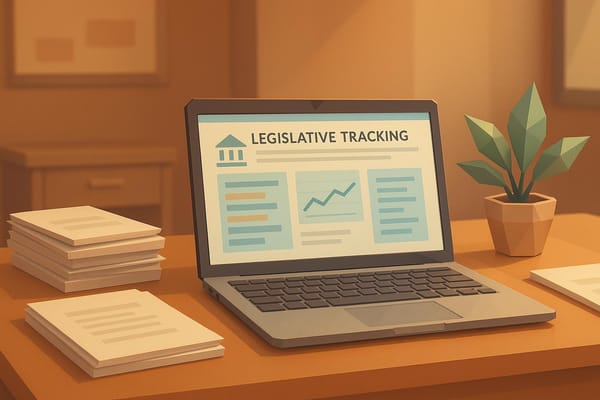New Bill Targets Train Blockages

The introduction of HB348 marks a crucial step towards enhancing emergency response efficiency in Alabama. As emergency services are essential to public safety, this legislation addresses a significant issue: the blocking of railroad-highway grade crossings by trains. Such blockages can delay critical services provided by law enforcement, firefighters, and emergency medical teams, potentially jeopardizing lives during urgent situations. As emergency aids rely heavily on timely access, this bill aims to impose penalties and establish protocols to mitigate these dangerous delays.
This blog post will delve into the main aspects of HB348, including its key provisions, civil penalties imposed on rail carriers, and the implications for emergency services throughout Alabama.
Background of HB348
With HB348, there's an acknowledgment of the increasingly problematic nature of train blockages at crossings. Identification of these delays is not just a legislative issue but a socio-economic concern as well. The bill presents the rationale behind addressing the blocking of crossings as it poses a significant risk factor in emergency scenarios. In many jurisdictions, such delays have become more commonplace, prompting legislative intervention.
Key Provisions Explained
HB348 categorically mandates that trains hindering a crossing for more than two continuous hours must be moved to enable access for emergency vehicles, except when halted due to mechanical failures or as stipulated by federal regulations. This provision is designed to streamline emergency responses and eliminate unnecessary hindrances that could lead to critical service delays.
Implications of Public Nuisance Designation
The bill stipulates that any train blocking access for the stipulated time could be designated as a public nuisance, thus allowing for court intervention. This severe classification emphasizes the risks posed by such blockages and introduces a mechanism for immediate action when necessary, reinforcing the urgency surrounding emergency access.
Civil Penalties Introduced
A significant aspect of HB348 is the imposition of civil penalties on rail carriers. A $7,500 fine is levied for each additional hour of blockage, capping daily penalties at $75,000. This financial implication aims to incentivize compliance and expedite the removal of obstructing trains promptly. By holding the railroads accountable, the bill promotes adherence to public safety protocols.
Legal Mechanisms for Enforcement
The enforcement of HB348 involves the local governing bodies and the Attorney General facilitating court petitions. This collaborative approach empowers local agencies to act swiftly in emergencies, fostering a community-oriented response to public safety threats. Courts can act efficiently to ensure adherence to the bill’s guidelines, enhancing overall responsiveness during crises.
Impact on Emergency Services
The ripple effects of implementing this bill are expected to enhance emergency service efficiency across Alabama. With streamlined access to critical response routes, first responders can act quickly in emergencies, potentially saving lives and minimizing damages. The legislation reinforces the prioritization of public safety over logistical inconveniences caused by train operations.
Conclusion and Future Outlook
In summary, HB348 represents a pivotal legislative effort to ensure that emergency services can function without undue delays caused by train blockages. As it works its way through the legislative process, the bill’s anticipated enactment by October 1, 2024, heralds a new era of accountability for rail carriers in Alabama. Ensuring that trains do not obstruct lifesaving emergency responses reflects a growing commitment to public safety and effective governance.
Ultimately, the successful passage of HB348 will depend on collaborative enforcement efforts and public awareness of the important changes it brings to emergency services in Alabama.




